Get the Women's Herbal Conference Scoop
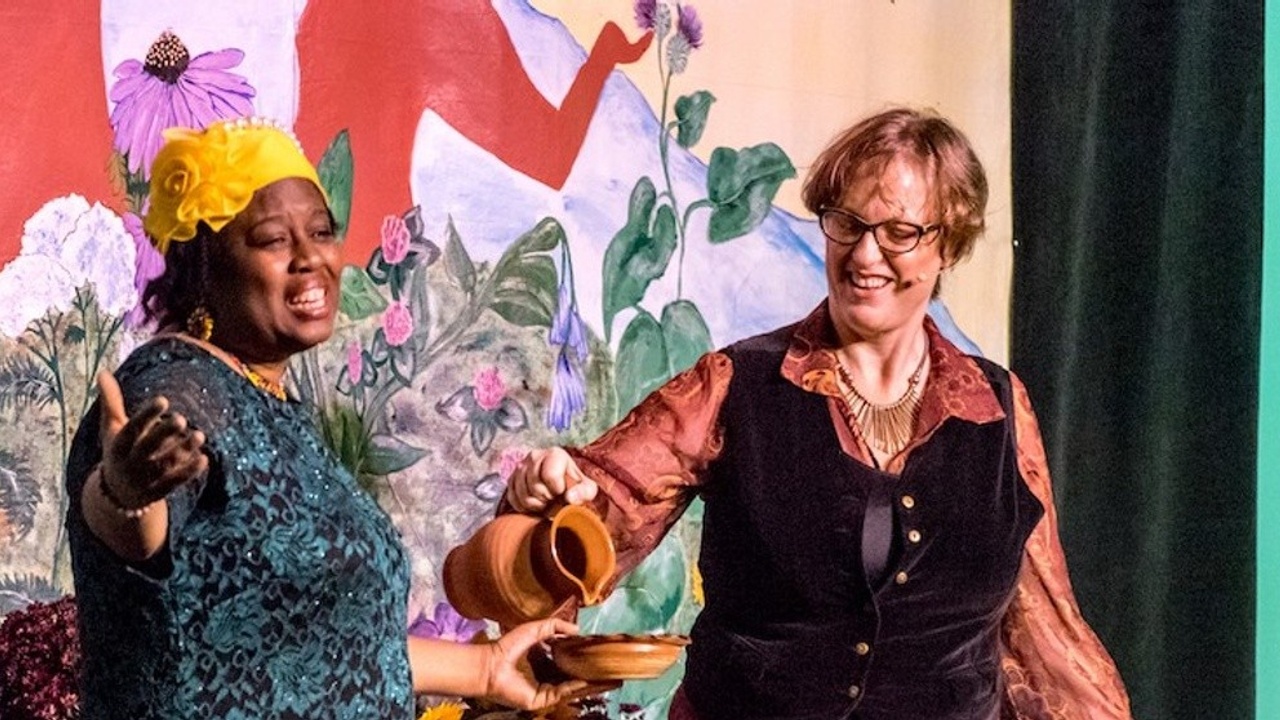
by Corinna Wood
Curious to get the scoop on the Southeast Wise Women Herbal Conference?
For 15 years, women came to the women's conference from near and far each autumn for inspiration, celebration and practical learning. We began in 2004 with 200 women and grew to 1300, the largest herbal conference in the country.
In 2019 we celebrated our 15th anniversary at the final Southeast Wise Women Herbal Conference.
Were you among the women who gathered? Or a sister of yours? I'd love to share the scoop with you on the Southeast Wise Women Herbal Conference.
Rooted in the Wise Woman Tradition, the conference name reflects its origins. The Wise Woman Tradition embraces the Earth, local plants, deep nourishment and self love. It is a lens through which we can recognize our interconnectedness and wholeness of body and spirit.
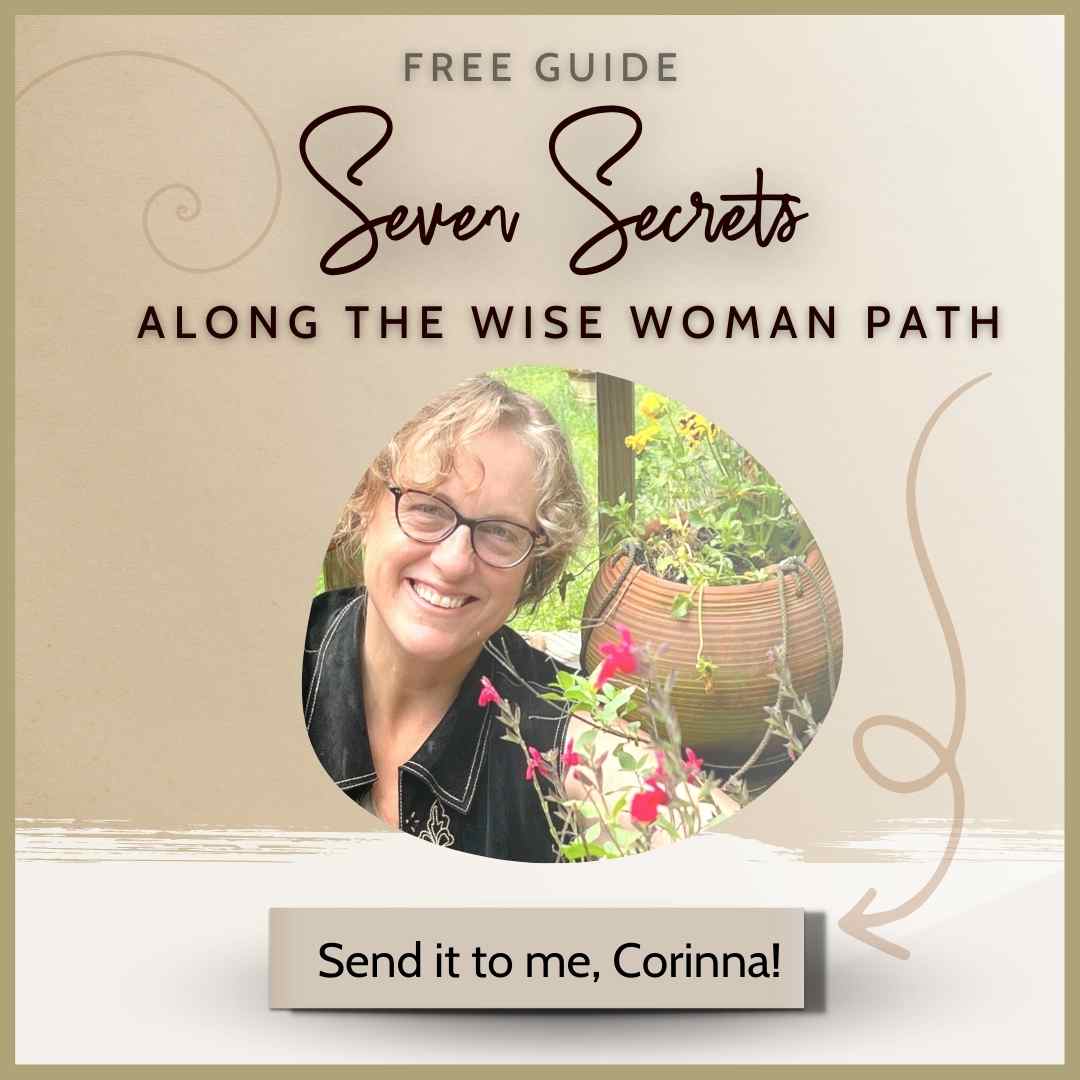 The Wise Woman path is a process of remembering much of what we already know—including ancestral memories of using wild plants around us, as food and medicine.
The Wise Woman path is a process of remembering much of what we already know—including ancestral memories of using wild plants around us, as food and medicine.
You may know it as “folk wisdom”—the wisdom, rituals and remedies that were passed on to our elders from their foremothers.
The Wise Woman Tradition is practical and intensely personal, calling us to re-integrate ourselves in our own bodies and to reconnect with the Earth.
In the Wise Woman Tradition, we understand our bodies as sacred and we trust that as a source of inner guidance.
Throughout the years, the Wise Woman Tradition was always at the heart of the Southeast Wise Women Herbal Conference.
Table of Contents
Standing on the shoulders of the New England Women's Herbal Conference
The women of my mother’s generation laid the groundwork for the rich opportunities we enjoy today. Many of the gatherings and leaders that shaped women’s music, culture, and spirituality today, began when I was growing up, in the 1970’s and 1980’s.
This is true in the women's herbal community as well.
Honoring the women who came before us
In birthing the Southeast Wise Women Herbal Conference, I built on foundations laid by Gail Ulrich, founder of the New England Women’s Herbal Conference; Eaglesong Gardener in the Northwest; and Karen Aguiar and Terri Jensen of the Northern California Herbal Symposium, among others.
Their commitment to women’s issues and natural healing inspired me to explore my personal power and the power of women coming together.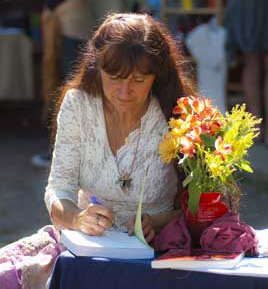 One year at the Southeast Wise Women Herbal Conference, Rosemary Gladstar shared a story about Collette Gardiner and her sisters at the Oregon Women’s Herbal Conference at Trillium Farm 30 years before.
One year at the Southeast Wise Women Herbal Conference, Rosemary Gladstar shared a story about Collette Gardiner and her sisters at the Oregon Women’s Herbal Conference at Trillium Farm 30 years before.
As the first of this generation of women’s herbal conferences, they “planted seeds,” wishing that theirs would inspire many women’s herbal conferences around the country.
They seeded a movement. We honored their foresight and vision.
I realized the Southeast too was ready
At the tender age of 22, I trailed along at Susun Weed's side as her apprentice when she taught at the New England Women's Herbal Conference, and I dreamed of teaching at such a conference myself one day.
A decade later, running Red Moon Herbs in the mountains of North Carolina, I was aware that women were gathering around the country— including the New England Women's Herbal Conference (aka. Northeast Women's Herbal Conference), the Northwest Women's Herbal Conference (now known as the Pacific Women's Herbal Conference), and the California Women's Herbal Symposium.

The women I knew as herbal students and herbal customers were hungry to learn more about working with herbal plants, earth-based healing, and the Wise Woman Tradition.
Then it dawned on me that I would be the one to start it. Susun Weed agreed to be our first keynote speaker. When I put out the call, I was impressed by the teachers from the Southeast who came forward, seemingly out of the woodwork.
The first year, our conference had 200 women attending. Through the experience of being onsite at that first gathering, I knew without a doubt that this event needed to continue, that it was filling an important need in this region.
Over the first ten years, we grew by about a hundred participants per year, until we grew to over a thousand women strong.

The 15th anniversary women's conference
I produced the women's conference for 15 years (a year-round full-time job in itself!).
Midway through the conference years, Jeannie Dunn took over directorship and ownership of Red Moon Herbs. That allowed me to focus solely on developing and producing the annual educational programs through Southeast Wise Women—the women's herbal conference and teaching my own educational programs on holistic healing for earth-based women.
In 2019, through my menopausal metamorphosis, I decided to expand my teaching in response to the high demand. My intuition led me to declare that the 15th anniversary of the Southeast Wise Women Herbal Conference was the last I would produce.
Interestingly, the pandemic hit 6 months later. Many have speculated on the divine timing of that convergence.
Video clips from the final conference extravaganza
During the opening ceremony of the final 15th anniversary herbal conference, Phyllis Utley performed a dramatic reading about the Wise Woman tradition as written by Susun Weed in her book Healing Wise.
You're invited to take a few minutes to enjoy the video of that powerful spoken word performance—a palpable enactment of the Wise Woman tradition.
And keep an eye out to the right of the stage, where Phyllis' mother Maggie "Queen Mother" Gladden is also featured!
"The Wise Woman tradition is the oldest tradition of healing known on our planet, yet one that is rarely identified, rarely written or talked about. A woman-centered tradition of self love, respectful of the earth and all her creatures, the Wise Woman tradition tells us that compassion, simple ritual, and common herbs heal the whole person.
“I see the wise woman. She is old and black and walks with the aid of a beautifully carved stick. She is the ancient grandmother of us all and she represents health/wholeness/holiness in the Wise Woman Tradition . . . she winks at me and spreads her arms."
~Healing Wise by Susun Weed
Other highlights from the final conference include . . .
Corinna Wood speaks at the Opening Ceremony of the final women's conference
African dance at the 15th anniversary celebration
Longtime conference teacher Christan Poret along with women from her African Dance troupe Djoli Kelen performed with friends Giwayen Mata and Egbe Sekere of Atlanta.
Get a taste with their performance of "I want to be a wise woman!"
Unity Village at the Southeast Wise Women Herbal Conference
I’m often asked about the conference’s focus on racial equity and what we called "Unity Village." To share that scoop with you, here's the written information provided to my women's conference attendees:
Unity Village
Unity Village is the heart of the conference, which we collectively create as a community of women. This is a place to connect and integrate in relaxing and intimate ways, honoring our similarities as well as our diversity. Laid out in a round cluster, these spaces have something for everyone. You’re invited to come explore . . .
Deep Roots Sanctuary
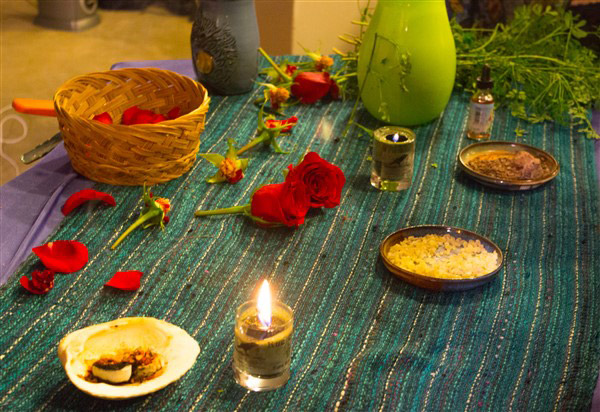 Deep Roots Sanctuary is a space for integration and personal reflection within a supportive communal setting.
Deep Roots Sanctuary is a space for integration and personal reflection within a supportive communal setting.
In this sacred space, we honor the women who have come before us, and prepare our own “roots” for the inward wintertime. Experience and embody the Wise Woman Tradition—with indigenous roots from around the world—through interactive activities.
Come as often as you want . . .to pray, think, grieve, remember ancestors, meditate, or simply be and breathe. May this be a place for you to ground, center, and connect!
As we all cultivate our connection with our new home at Kanuga Lake, you are invited to bring offerings of gratitude for the land to the Land Blessing altar just outside the Deep Roots door. Please bring meaningful items of yours from home or that you respectfully gather nearby.
Red Tent — for women of all ages & stages
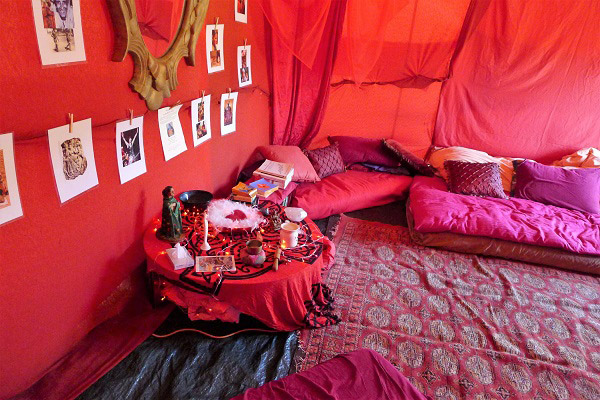 We look forward to seeing any and all of you in the Red Tent as we gather to honor our journey as women.
We look forward to seeing any and all of you in the Red Tent as we gather to honor our journey as women.
The Red Tent Movement is a revival of the ancient custom of women taking time away from their busy lives to rest and renew.
Not only for menstruating women, this space welcomes women of all ages and stages, of any spiritual path or background—a place for elder women to connect with one another, a place for breastfeeding women to relax together, a place for all women to celebrate our commonalities as well as our differences.
Come to rest, draw, journal, share stories, move, dance, rub shoulders, meditate, sing, giggle, or just relax and enjoy this nurturing environment.
Sister Love — sacred space for women of color
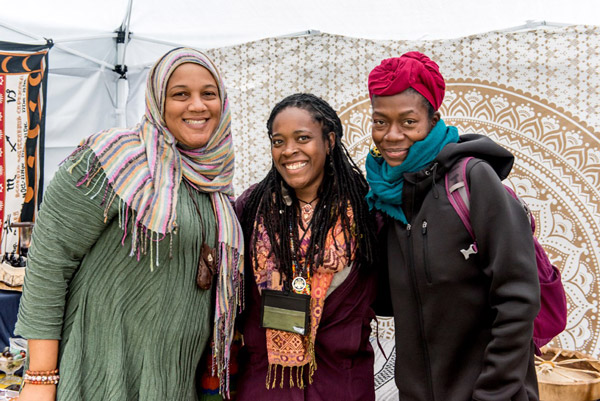 Sister Love is a sacred space founded in 2009 by Olatokunboh Obasi, in which we honor the healing legacy of our black and brown grandmothers and ancestors.
Sister Love is a sacred space founded in 2009 by Olatokunboh Obasi, in which we honor the healing legacy of our black and brown grandmothers and ancestors.
For many centuries the suppressed earth-based practices of People of Color went underground in order to protect and preserve knowledge for future generations. In honor of our grandmothers, we join to reclaim our ancient wisdom.
Sister Love serves as a gathering place for celebration, congregation and communication as a movement towards big healing and big unity among us.
Facilitated discussions and class offerings run throughout the day, until midnight. Please note that this is sacred space for women of color ONLY (racially/culturally diverse heritage non-European in origins, such as Native American, African American, Middle Eastern, Asian, Indian, and Latina), ages 18+.
Unity Fire
 All women are welcome to congregate at the firebowl at the heart of Unity Village.
All women are welcome to congregate at the firebowl at the heart of Unity Village.
Gather with us in unity as we share our commonalities and our differences, engage in open dialogue as sisters, and consider steps that we can take to support racial healing in our lives and institutional racial transformation.
No shame, no blame in this place of support, compassion, and accountability. Come with your brave and open heart, reframing “I don’t see color” to recognizing white privilege and racism, to heal and transform together for racial justice.
Racial equity at the women's herbal conference
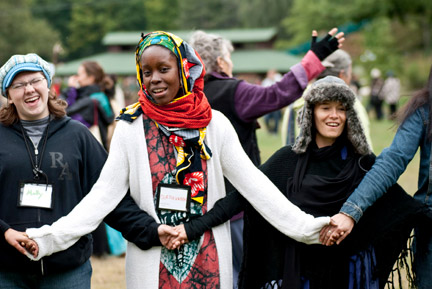 Why a focus on racial equity at an herbal conference?
Why a focus on racial equity at an herbal conference?
The conference focuses on women’s health, from a perspective of empowerment and self-love, including overcoming internalized oppression.
For women of color, day-to-day experiences of systemic racism, micro-aggressions, and internalized oppression add up to huge health risk factors. Therefore, we consider the dynamics of racism an important aspect of women’s health to address, individually and collectively.
As mostly white organizers living in the Southeastern United States, we acknowledge the unique struggles that African Americans, Cherokee, and other women of color have endured in these lands and continue to face today–and we recognize that we have a responsibility and an opportunity to educate ourselves around understanding and addressing racism and white privilege.
For example, scholarships for women of color in financial need are prioritized, due to racial income disparity connected to oppressions of the past and present.
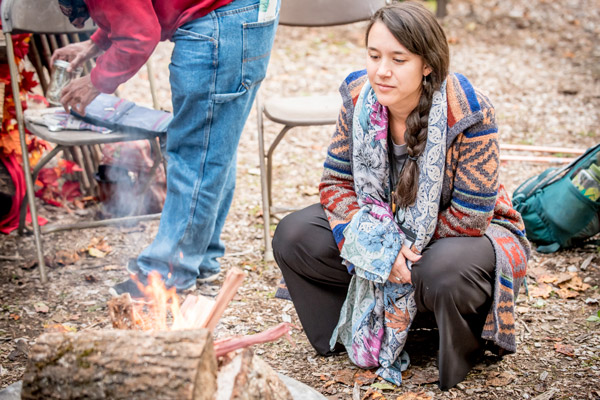 As the conference has grown, Unity Village has become the heart of the conference, which includes a gathering place for women of color as well as opportunities for all women to engage in dialogue around understanding racism.
As the conference has grown, Unity Village has become the heart of the conference, which includes a gathering place for women of color as well as opportunities for all women to engage in dialogue around understanding racism.
We see Unity Village as an ongoing experiment and exploration, with no quick fixes or easy answers.
As organizers, teachers, and participants, we have been growing and learning together through our experiences and dialogue with one another–honoring our differences as well as our commonalities. And the more we learn, the more we realize we still have a lot to learn!
Classic educational resources about understanding racism and white privilege
White Privilege: Unpacking the Invisible Knapsack by Peggy McIntosh, at the SEED website: Seeking Educational Equity and Diversity
"Cultural Etiquette: A Guide for the Well-Intentioned" by Amoja Three Rivers, at the FIC website: Fellowship for Intentional Communities
Running an herbal conference by, for and about women
The Southeast Wise Women Herbal Conference was always known and loved as a women-run, women-owned event, by and for women.

As a women’s conference, we left it up to participants to self-identify as women. We did sometimes have trans women attend, who were resonant with our focus around earth-based healing and women’s health.
Of course, our community included lesbian, bisexual, and straight women. We also welcomed women who consider themselves queer, gender non-conforming, or butch-identified.
Stepping outside of gender stereotypes is not easy, and I appreciate those who stretch people’s assumptions about what a woman looks like and other limiting aspects of the societal constraints around “femininity.” That inspires us all to embrace our wildness and strength!
The women-only setting
Our participants often told me that they deeply valued this annual opportunity to be immersed in a large group of all women.
I’ve found that women-only settings offer a special tone and energy.
As we gather together as women, we connect and celebrate our commonalities as well as our differences. In this container, we cultivate self-love and dissolve barriers of competition between women.
This women-only setting also allowed us to focus on issues that are important to us, free from potential shame or misunderstanding.
In this context, we naturally found ourselves deepening our relationships with each other as well as our own abilities, strengths, and power.
From sound engineers to electricians
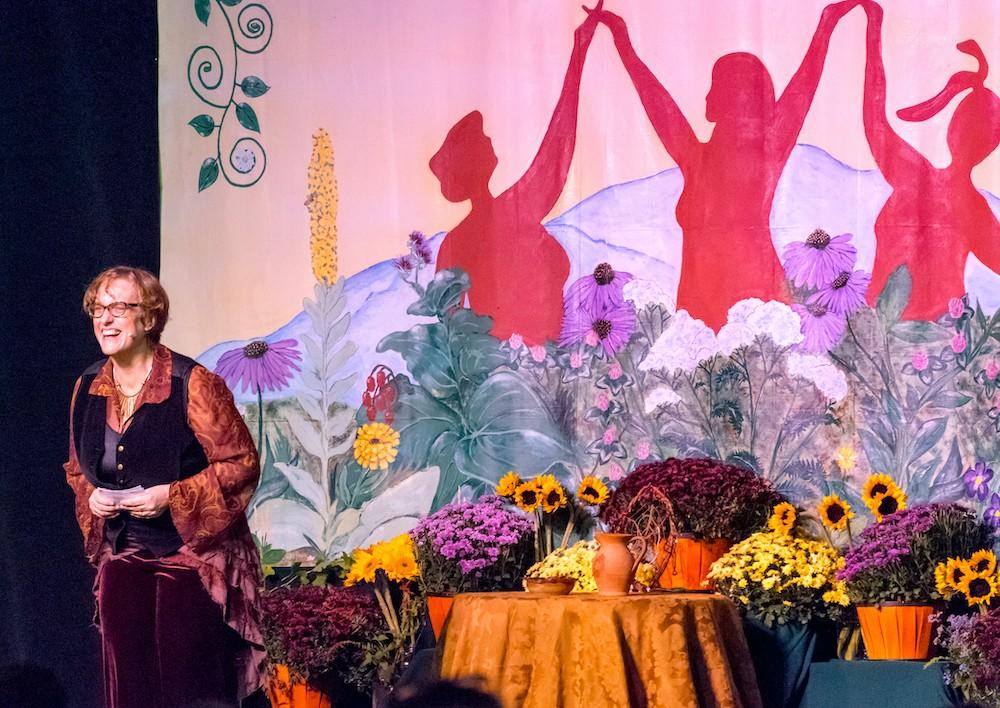 In directing the organization producing educational events for women, I was committed to running the events with an all-women staff.
In directing the organization producing educational events for women, I was committed to running the events with an all-women staff.
I also tended to seek out professional services from women--such as web technicians, graphic designers, business consultants, accountants, etc.
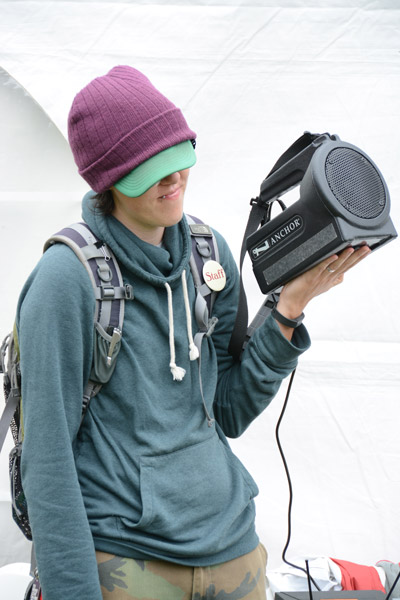 In the early years, we had challenges around areas like sound and electricity—we felt intimidated since we didn’t have any experience in those areas, and had been socialized as women to think of those as male roles.
In the early years, we had challenges around areas like sound and electricity—we felt intimidated since we didn’t have any experience in those areas, and had been socialized as women to think of those as male roles.
Through the process of attending other women’s gatherings, and networking with other women in a range of trades, we gained confidence that as women we too can learn those skills.
Our all-women seasonal crew ultimately included sound engineers, carpenters, natural building experts, riggers, and electricians.
The experience of producing the herbal conference was an ongoing education in women’s empowerment, in itself!
Not only did the classes focus on women’s self-acceptance and empowerment, we also had an opportunity to model what is possible, for women to manifest together.
If you like, I invite you to get your hands on a free copy of the Teacher Guide: 7 Ways to Impart the Wise Woman Tradition (pdf)—the guide that was actually used for Southeast Wise Women Herbal Conference teachers.
The legacy of the women's conference
 In 2019, we celebrated our 15th anniversary at the final Southeast Wise Women Herbal Conference, leaving behind a legacy of honoring women and the Earth made tangible.
In 2019, we celebrated our 15th anniversary at the final Southeast Wise Women Herbal Conference, leaving behind a legacy of honoring women and the Earth made tangible.
Together we wove a web of women rooted in the Wise Woman Tradition.
The ripples continue in our lives and beyond.
Across the Southeast and beyond women are taking charge of their own health and the health of their families and communities.
Women are bringing back the folk wisdom of our foremothers—from the ancestral memories of using wild plants as food and medicine to standing in the truth of how capable and competent we really are!
____________
Spread the wild wise woman ways! Link to this article from your website, or share with your friends using this button~
Comments ~ what stands out for you today?







